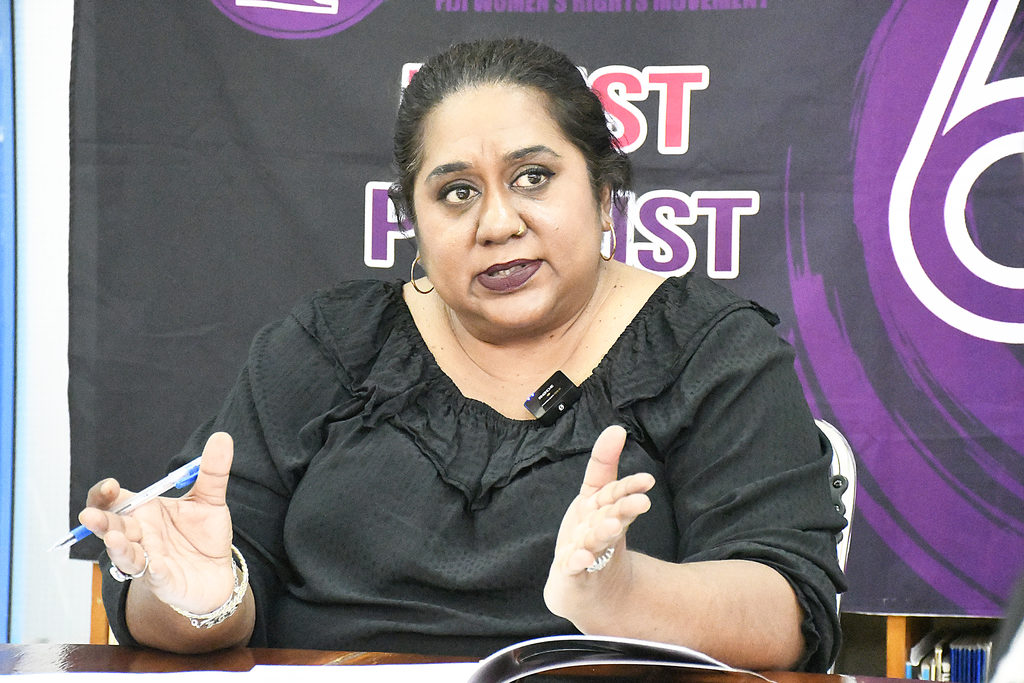Fijian women are quietly quitting their jobs at the peak of their careers because they can no longer cope with the unspoken reality of menopause.
That’s the stark revelation from new research by the Fiji Women’s Rights Movement (FWRM), which has found that a lack of understanding, support and medical guidance around menopause is forcing many women into isolation – and out of employment – just when they are most needed.
“Some of the women we spoke to actually quit their jobs,” said Nalini Singh, executive director of FWRM.
“They were in senior roles, with so much to give, but they couldn’t cope. The symptoms were too overwhelming, and the workplace didn’t offer any support.
“No one talked about it.”
The ‘M’ Word
The research — Breaking the Silence Around Menopause — lifts the lid on one of Fiji’s last unspoken health crises.
Conducted with women in both urban and rural communities, the study reveals the wide-reaching impact of untreated and unsupported menopausal symptoms, which range from severe bleeding, anaemia, and joint pain, to emotional breakdowns, memory loss and exhaustion.
“It’s not just about hot flushes or mood swings,” Ms Singh said.
“We’re talking about women becoming so anaemic that they can’t function. We’re talking about marriages ending. We’re talking about careers cut short. And all of it happens in silence.”
Ms Singh, who has also gone through menopause, says the issue has long been dismissed as just “part of life”, something women are expected to endure quietly.
“But this is not something we choose. It’s not something we can skip. Every woman goes through this, and yet the system is not set up to help us.”
The study calls for a “life-cycle” approach to sexual and reproductive health education, one that includes menopause alongside menstruation, fertility and childbirth.
Significant implications
Ms Singh said it made no sense to educate schoolchildren about puberty and reproduction, only to abandon the conversation when it came to menopause.
“Where are women supposed to learn about this? How are they supposed to prepare? And if they don’t know what’s happening to them, how can they get help?”
The consequences of this silence are far-reaching, she said.
In community consultations, FWRM heard stories of women feeling as though they were “going mad”, women walking away from marriages, and women grappling with symptoms without the vocabulary to even describe them.
“In one of our roundtables, a woman said she felt like killing her husband. She couldn’t bear anything, and she didn’t know why.
“The emotional, physical, and psychological impact of menopause is real – but if no one explains it to you, it can feel like your world is falling apart.”
The research also highlighted vast knowledge gaps, particularly in rural areas, where the word “menopause” is almost never used.
Women are instead described as “sick,” and there is little awareness even among healthcare workers about the need for medical support, hormone therapy or tailored care.
Call for menopause policy reforms
FWRM is calling on the Government to act, beginning with the Ministry of Health and Ministry of Education.
Ms Singh said she wants to see menopause included in family life education in schools, and is pushing for the Ministry of Employment to consider menopause leave, just as the draft Employment Bill includes provision for menstrual leave.
“Why are we losing women who are in their prime? Why aren’t we creating support systems that allow them to stay in the workforce, mentor others, and continue contributing?”
She said while some questioned whether menopause leave would be abused, this should not be an excuse for inaction.
“Trust women,” she said.
“Most women don’t want special treatment – they just want support. They want someone to recognise what they’re going through and give them space to manage it.”
The report also warns that the silence around menopause has serious social consequences including increased vulnerability to domestic violence. Emotional and behavioural changes brought on by menopause can strain relationships, especially when partners are unaware of what’s happening.
“Often a woman will no longer be able to do what she used to do – physically or emotionally. And if the men around her don’t understand that, it can lead to conflict, even violence,” she said.
Progressing talk to action
One of the most heartening outcomes of the research, however, has been the conversation it has initiated, with men now asking questions, women speaking up and communities realising they are not alone.
“After we published the report, a male friend told us he finally understood what his partner was going through,” Ms Singh said.
“He read about it. He asked questions. Then he started a conversation about menopause in his office, for men and women. That’s the kind of awareness we need.”
Ms Singh is determined to see these conversations move into policy and is urging the government, private sector and civil society to treat menopause as a public health issue, not just a personal one.
“We need to stop treating menopause like a personal failing or a special sickness.
“It’s a biological reality. And it’s time our policies, our workplaces, and our health systems reflected that.”
“We don’t need to conduct endless costing studies to prove menopause is real.
“We just need to trust women when they say, ‘This is what I’m going through.’
“That should be enough.”

